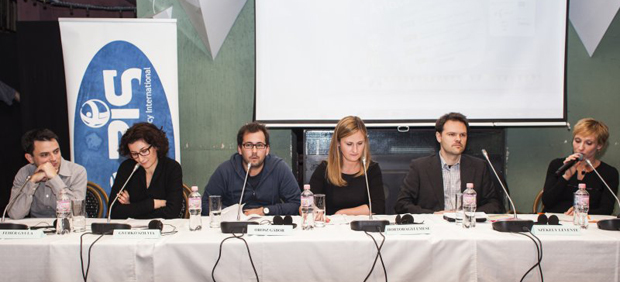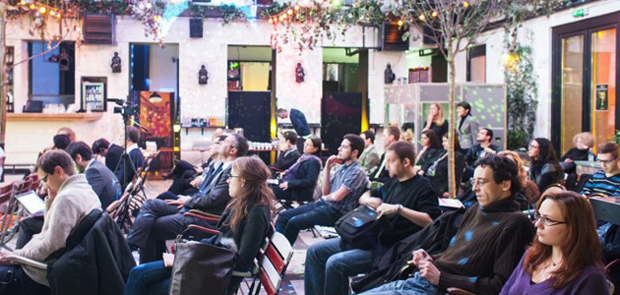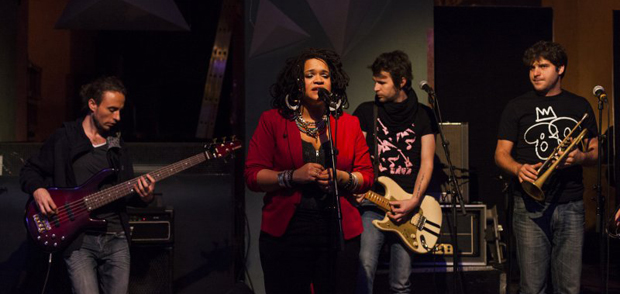On the occasion of International Anti-Corruption Day 2013, Transparency International Hungary organised the Átláccó Festival, a professional and cultural event with the aim of drawing the young generation’s attention to the importance of the fight against corruption.
Young people learning bad patterns
The “Youth and Integrity” conference on 9 December dealt with Transparency International’s research showing that while youngsters condemn corruption, the majority of them, around 80 per cent think that the use of illegitimate tools leads to greater success than being honest.
The majority of young people studying in higher education prefer the honest way, however, will cheat to get a dream job or a better grade. Widespread apathy also characterises the young generation, as it does the rest of the population: it seems that a lot of people are becoming insensitive to corruption. 70% of the Hungarian population would not report a case of corruption, either for a lack of trust in the authorities, or out of fear of retaliation. Young people often even fail to recognise a situation involving corruption, and don’t know how to exercise their rights as citizens, or the ways and places to report abuses of power.

Educating the young generation is indispensable: they have to learn as early as possible the ways to recognise corruption and the ways to act against it.
The majority of young people think they have an important role in the fight against corruption, as they are the generation who, growing up, will have a power shaping public opinion. The majority of the population also believes that everyday citizens have a big responsibility to put an end to corruption.
A bigger part of them also considers corruption to be a serious concern in today’s Hungary. This is interlinked with the low level of public trust, and the inefficiency of public institutions. Transparency International firmly believes that input is needed from all of us, including youth, in order to change the situation. Educating the young generation is indispensable: they have to learn as early as possible the ways to recognise corruption and the ways to act against it.
Because of this Transparency International compiled an educational booklet for high school teachers. The booklet can be downloaded here. The material, introducing an overview of how the Hungarian public power system functions, and the schemes of corruption with the help of illustrations, examples and exercises developed for students, fills a gap in the necessity of anti-corruption education.

To publicise the fight against corruption, a group of high school students, armed with fish tanks, performed in a spectacular flash mob, meant to represent the ways in which they would clean Hungary from corruption.
TI counts on university students as well
TI’s education and mobilisation programme aimed at university students and different youth organisations launched this year. The aim of the programme is to build a societal base, resulting in more young people joining the fight against corruption. There is a need for conscious and responsible citizens; it is only with their help that we can curb corruption in Hungary. Transparency International’s Corruption Perceptions Index, shows that Hungary is doing quite badly when it comes to corruption – it is ranked in the lowest third within the countries of the European Union.
Benő vs. corruption – animation against corruption
The evening of the Átláccó Festival hosted also the winning films of TI’s animation contest. All films shared a common, loveable fictional character, Benő, who ends up in different corruption situations and always strives to choose the honest way out of them. TI’s aim is to use these films made by youngsters to solicit people to reflect on and mobilise against corruption. Below you can view the best animation. And the festival ended with a concert of Hungarian-Ghanaian singer Sena.
First award winning film:
Carousel image: Copyright, Transparency International Hungary

















 Connect with us on Facebook
Connect with us on Facebook Follow us on Twitter
Follow us on Twitter